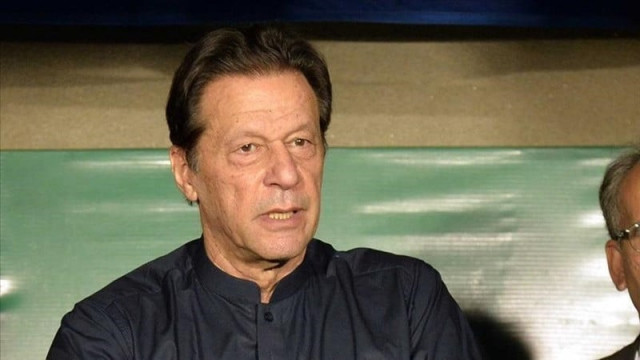The Supreme Court admitted on Thursday the bail statements of the expelled Prime Minister Imran Khan in eight cases related to the disturbances of May 9.
During the hearing, the president of the Supreme Court of Pakistan (CJP) Yahya Afridi asked the prosecutor Zulfiqar Naqvi two questions: “He must have read the decision of the Superior Court of Lahore. First, can a final finding be given in a bail case? Second, in cases of conspiracy, this same court has granted a bond before.
Arguing before the court, the prosecutor said that the observations made in the cases of bail are always an interim nature and have no effect on the trial procedures. From 1996 to 2024, the SC in several failures argued that observations in bail cases are temporary.
CJP said the SC had granted the bail of Ejaz Chaudhry in a case of May 9 despite the accusations of conspiracy and sought clarification about that ruling, the prosecutor replied that the case was different from Imran Khan.
The president of the Supreme Court replied: “He must prove how this case differs from the previous ones.” Judge Shafi Siddiqui added that Ejaz Chaudhry had been accused of presence in the scene and conspiracy. Judge Hasan Azhar Rizvi asked if Ejaz Chaudhry was really present on May 9. The prosecutor said that electronic evidence showed the presence of Chaudhry.
Read: CJ rejects the delay in Imran bail audiences
Then, the president of the Supreme Court asked: “What evidence does it have against the founder of PTI?” The prosecutor replied that three witness statements had been presented as evidence and said that the founder of PTI played a central role in all cases.
When the hearing resumed after a short break, the prosecutor sought to discuss the merits of the case.
CJP Afridi, however, commented: “We will not allow arguments about merits. You can only answer legal issues about the position of conspiracy.”
ISPR DG says that May 9 perpetrators will face laws
The general director of Public Relations (ISPR) of the Director General, General Ahmed Sharif Chaudhry, said that those involved in the violence of May 9, along with his facilitators, would face the law.
He said that Pakistan had the potential to remodel the fate of the region, so he remained under a constant attack. He urged young to understand the legacy and history of their ideological state.
Referring to regional threats, Lieutenant General Chaudhry said some said that India, with his military machine of one billion dollars, could easily defeat Pakistan, and others suggested that India should attack so that his representatives could attack simultaneously. “But the world saw Pakistan face the enemy on both fronts,” he said.
The ISPR DG said that the consensus decision taken by all political parties in 2014 to eliminate terrorism in all its forms had not yet been completely implemented.
He said that every time measures were taken to deport illegal Afghan citizens involved in crimes, political and criminal elements within Pakistan raised objections. He stressed that the complete implementation of the 14 points of the National Action Plan was essential.
When calling Pakistanis, the country’s largest asset, he said that the gaps in the government were filled every day through the sacrifices of military, police and police agencies.




